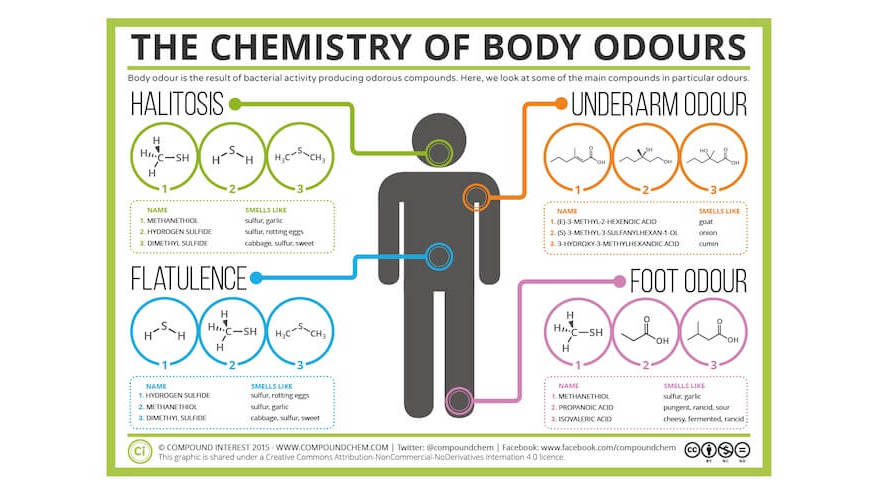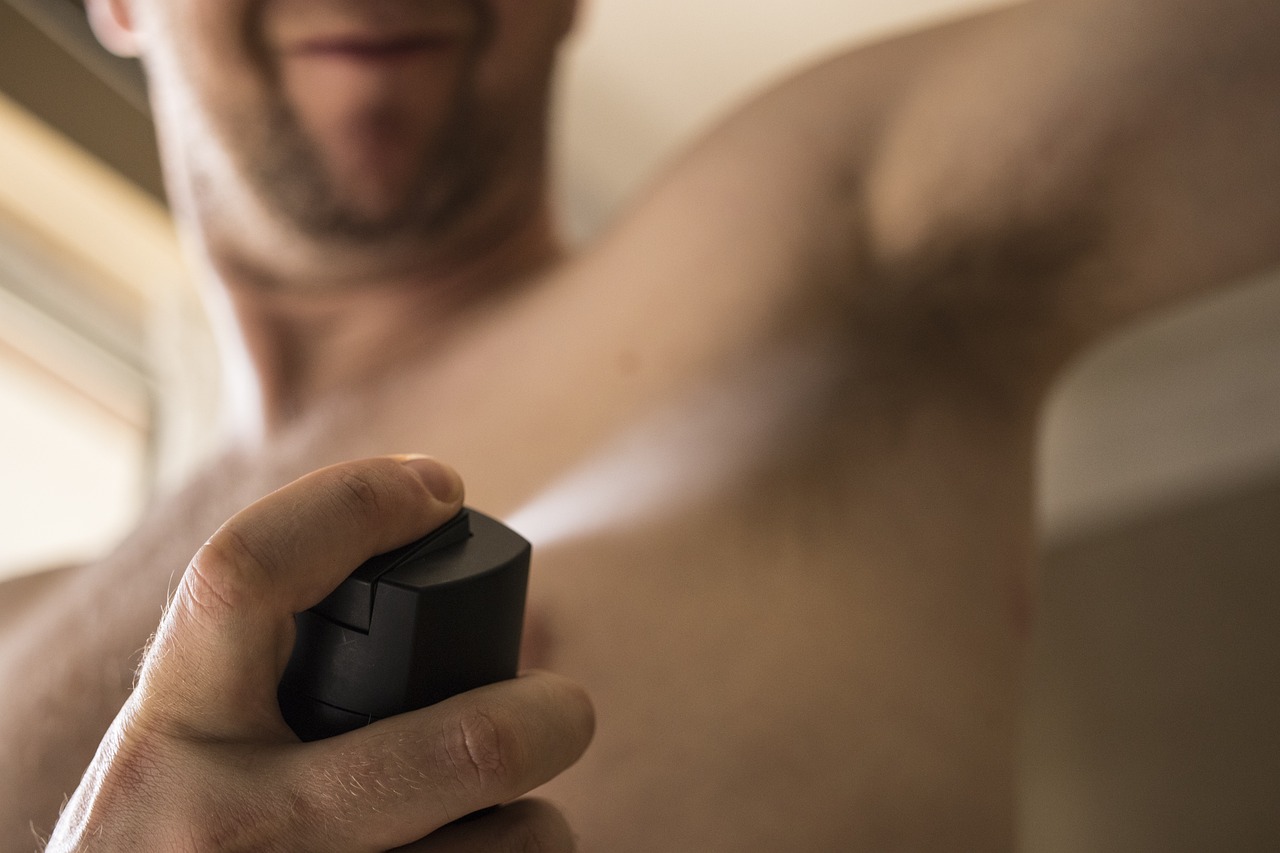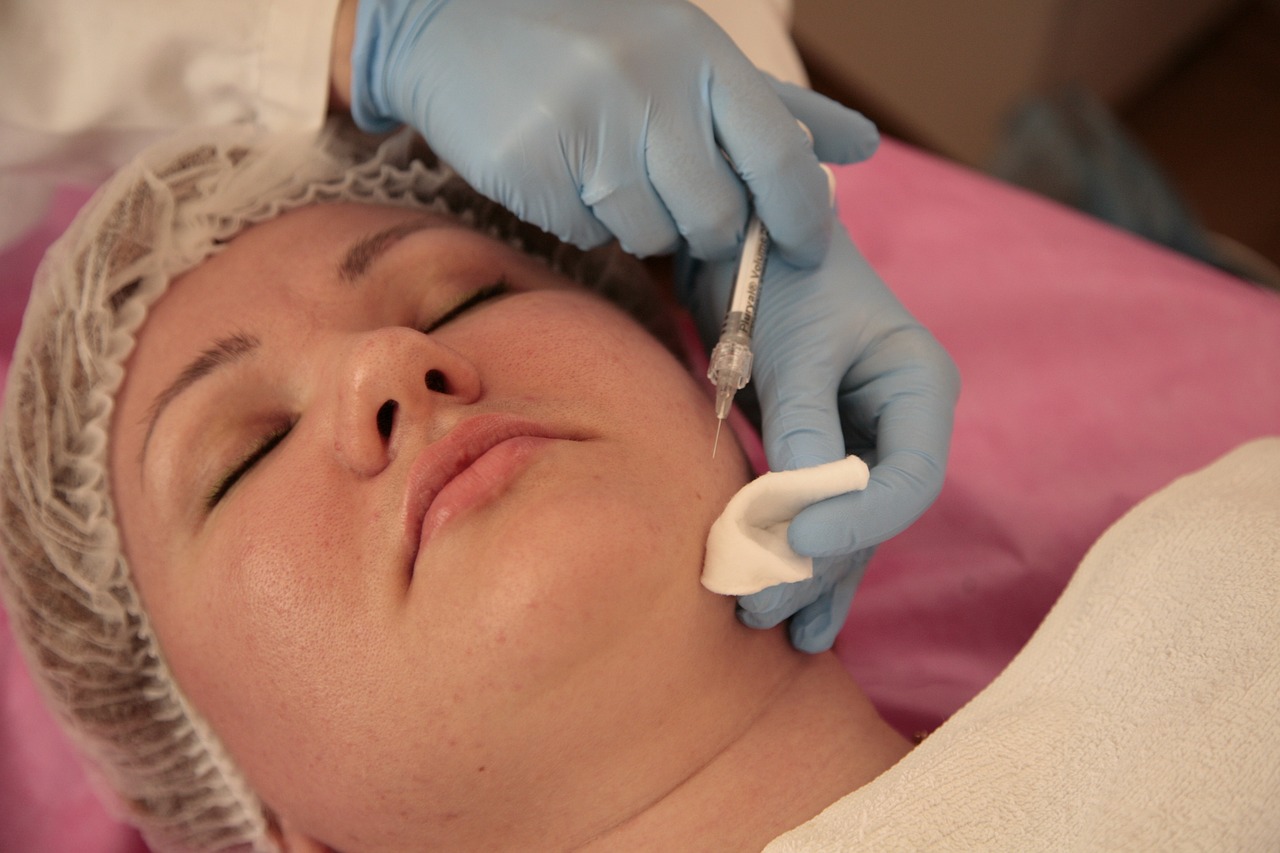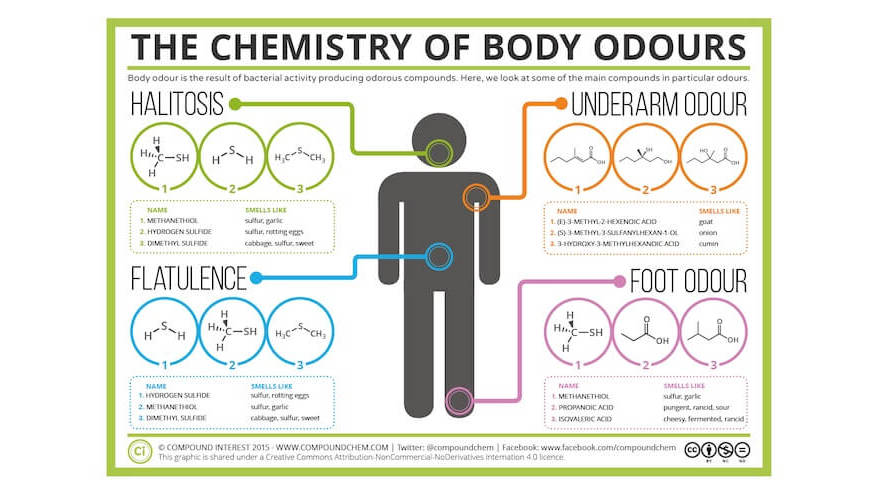Table of Contents
Maintaining personal hygiene is not only essential for physical health but also plays a crucial role in boosting self-confidence and fostering positive social interactions. One of the key aspects of personal hygiene is managing body odor. In this article, we will explore effective strategies and tips for managing body odor, allowing you to stay fresh and confident throughout the day.
Maintaining personal hygiene is a holistic practice that encompasses not only physical health but also mental and social well-being. It is a cornerstone of self-care that not only keeps you healthy but also enhances your overall quality of life. Focusing on managing body odor is just one facet of this multifaceted approach. Here, we will delve into various strategies and tips for effectively managing body odor, as it can significantly impact your daily life, self-esteem and social interactions.
Daily Shower Routine: Start your day with a refreshing shower using a mild, pH-balanced soap or body wash. Pay special attention to areas prone to sweating, such as the underarms, groin and feet. Thorough cleansing removes sweat, bacteria and dead skin cells that can contribute to body odor.
Choose Breathable Fabrics: Select clothing made from natural, breathable materials like cotton or linen. These fabrics allow your skin to breathe and reduce sweating, preventing the buildup of odor.
Antiperspirant or Deodorant: Apply an antiperspirant or deodorant to your underarms daily. Antiperspirants work by reducing sweat production, while deodorants mask odor and have antimicrobial properties to combat bacteria.
Stay Hydrated: Drinking plenty of water helps regulate your body temperature and dilute sweat, which can reduce the intensity of body odor.
Dietary Considerations: Certain foods, such as garlic, onions and spicy dishes, can contribute to body odor. Limiting or moderating your consumption of these foods may help manage odor.
Regularly Wash Clothes: Dirty clothes can trap odors, so make sure to wash them regularly. Don’t forget to clean items like socks and undergarments that are in close contact with sweat-prone areas.
Foot Hygiene: Wash and thoroughly dry your feet daily, paying attention to spaces between the toes. Use foot powder or antifungal products if necessary and choose breathable shoes to prevent foot odor.
Change and Maintain Shoes: Rotate your shoes to allow them to air out between wears. Consider using odor-absorbing insoles and replace old or heavily worn shoes that may harbor odors.
Personal Grooming: Regularly trim and maintain hair in areas where sweat accumulates, such as the underarms and groin. This reduces the surface area for odor-causing bacteria to thrive.
Consult a Healthcare Professional: If body odor remains a persistent concern despite following these tips, consult a healthcare provider. Excessive or unusual body odor can sometimes be a sign of an underlying medical condition that requires attention.
Mental and Emotional Well-being: Remember that self-confidence and body odor management are closely linked. Feeling good about yourself can reduce stress and anxiety, which, in turn, can help reduce excessive sweating and odor.
Positive Self-Image: Embrace your body and recognize that everyone experiences some degree of body odor. Building a positive self-image can help you feel more confident in social interactions.
Incorporating these strategies into your daily routine can go a long way in managing body odor effectively. By doing so, you’ll not only stay fresh and confident throughout the day but also contribute to your overall physical and mental well-being, fostering positive social interactions and a more fulfilling life.
For additional details, consider exploring the related content available here The scent of attraction and the smell of success: crossmodal …
Understanding Body Odor
Body odor is a natural phenomenon caused by the interaction of sweat with bacteria on the skin’s surface. While it’s a normal part of life, unpleasant body odor can be a source of embarrassment and discomfort. Understanding the factors contributing to body odor is the first step in effectively managing it.
Body odor is a natural phenomenon resulting from the interaction of sweat with the bacteria residing on the skin’s surface. While it’s an inherent aspect of being human, the presence of unpleasant body odor can indeed be a source of embarrassment, social discomfort and decreased self-confidence. Therefore, gaining a comprehensive understanding of the factors that contribute to body odor is the crucial initial step in effectively managing and mitigating it.
One of the primary factors influencing body odor is the type of sweat glands we have in various parts of our bodies. Eccrine glands, which are abundant on the forehead, palms and soles, produce sweat primarily composed of water and salt and are responsible for cooling our bodies. Apocrine glands, on the other hand, are concentrated in areas like the armpits and groin and produce a thicker sweat that contains proteins and lipids. It’s this apocrine sweat that provides the ideal environment for bacteria to thrive and release odorous byproducts.
Diet also plays a significant role in body odor. The foods we consume can influence the scent of our sweat. For instance, pungent foods like garlic, onions and certain spices can lead to more pronounced body odor. Similarly, certain medical conditions, like diabetes or hormonal imbalances, can affect the composition of sweat and contribute to distinctive odors.
Maintaining good personal hygiene is crucial in managing body odor. Regular bathing, especially focusing on areas with a higher concentration of apocrine glands, helps reduce the bacterial load on the skin. Additionally, using antibacterial soaps and antiperspirants can help control odor.
Understanding that body odor is a natural occurrence and that there are effective ways to manage it can alleviate the discomfort and embarrassment it may cause. By addressing the factors that contribute to body odor and adopting proper hygiene practices, individuals can regain confidence, feel more comfortable in social settings and ultimately lead happier and more self-assured lives.
You can also read more about this here: Personal hygiene for pre-teens & teens | Raising Children Network

Sweat Glands
The body has two types of sweat glands: eccrine and apocrine glands. Eccrine glands are found all over the body and primarily produce sweat composed of water and salt. Apocrine glands, located in areas like the underarms and groin, produce a thicker sweat that combines with bacteria to produce odor.
Understanding the body’s sweat glands is key to appreciating the intricacies of our cooling and odor-producing mechanisms. Let’s delve further into these two types of sweat glands and their fascinating roles in regulating body temperature and maintaining personal hygiene:
Eccrine Glands – Cooling Champions: Eccrine glands are the unsung heroes of temperature regulation. Distributed all over the body, these glands produce a watery sweat composed primarily of water, electrolytes and a dash of salt. When you’re in a warm environment or engaging in physical activity, eccrine glands kick into action. Their primary mission? To cool you down.
As this clear sweat evaporates from the skin’s surface, it dissipates heat, effectively lowering your body temperature. This cooling mechanism is vital to preventing overheating and heat-related illnesses. It’s the reason you can enjoy a brisk jog on a hot day without suffering heatstroke.
Apocrine Glands – The Odor Culprits: In contrast to eccrine glands, apocrine glands are the culprits behind body odor and they’re concentrated in certain areas like the underarms and groin. What sets them apart is their production of a thicker, lipid-rich sweat that combines with the bacteria naturally residing on your skin. This bacterial interaction is what generates the distinct scent we associate with body odor.
Apocrine glands become more active during times of emotional stress or excitement, which is why stress-induced sweating often comes with a noticeable odor. This type of sweat contains organic compounds that serve as a veritable feast for bacteria, leading to the release of less-than-pleasant odors.
Understanding the roles of these two types of sweat glands highlights the importance of maintaining good personal hygiene, especially in areas where apocrine glands are concentrated. Regular cleansing and the use of antiperspirants or deodorants can help control bacterial activity and minimize unwanted body odor.
In essence, eccrine glands keep your body cool and comfortable, while apocrine glands, despite their odor-producing tendencies, remind us of the importance of maintaining cleanliness and good hygiene practices. Together, these sweat glands exemplify the remarkable adaptability of the human body in its quest for thermal balance and overall well-being.
For a comprehensive look at this subject, we invite you to read more on this dedicated page: Body Odour and How to Get Rid of It | Dettol India | Dettol India

Bacterial Activity
Bacteria naturally present on the skin break down sweat, leading to the production of compounds that create body odor.
The phenomenon of body odor is a fascinating interplay between our body’s natural processes and the microorganisms that call our skin home. Understanding this intricate relationship sheds light on why we experience body odor and how we can manage it effectively:
Microbial Harmony: Our skin is home to a diverse community of microorganisms, including bacteria. While some bacteria can be harmful, many are beneficial and play a crucial role in maintaining skin health. These resident bacteria help protect against pathogens and maintain a balanced skin microbiome.
Sweat as a Culprit: Sweat itself is odorless, primarily composed of water and salts. However, the sweat glands in our skin release two main types of sweat: eccrine sweat and apocrine sweat. Eccrine sweat, which is primarily water and salt, serves to regulate body temperature and doesn’t contribute significantly to body odor. Apocrine sweat, on the other hand, contains proteins and lipids that provide an ideal nutrient source for bacteria.
Bacterial Action: When apocrine sweat is released onto the skin’s surface, bacteria that naturally reside there break down the proteins and lipids in the sweat. This breakdown process generates compounds with distinct odors, contributing to body odor. The specific smell can vary from person to person based on their unique skin microbiome.
Hormonal Influence: Hormonal changes can influence the composition of apocrine sweat and, subsequently, body odor. This is particularly noticeable during puberty, when hormonal shifts lead to increased sweat production and changes in sweat composition.
Hygiene Matters: Maintaining good personal hygiene is essential in managing body odor. Regular bathing with soap and water helps remove sweat, bacteria and odor-causing compounds from the skin’s surface.
Clothing and Fabrics: The choice of clothing can impact body odor. Natural, breathable fabrics like cotton allow for better air circulation, reducing the buildup of sweat and bacteria. Synthetic materials, on the other hand, may trap moisture and contribute to odor.
Diet and Hydration: What you eat and drink can also influence body odor. Spicy foods, certain spices and foods rich in sulfur (like garlic and onions) can affect the scent of your sweat. Staying well-hydrated dilutes the concentration of odor-causing compounds in sweat.
Antiperspirants and Deodorants: Antiperspirants work by reducing sweat production, while deodorants help mask or neutralize body odor. These products can be effective in managing body odor, especially when applied to clean, dry skin.
Medical Considerations: In some cases, persistent or unusual body odor may be a symptom of an underlying medical condition, such as a metabolic disorder. If body odor is a concern, it’s advisable to consult a healthcare professional for a thorough evaluation.
Understanding the role of bacteria and sweat in body odor highlights the importance of maintaining a balanced skin microbiome and practicing good personal hygiene. With the right habits and choices, you can effectively manage body odor and feel confident in your skin.
For a comprehensive look at this subject, we invite you to read more on this dedicated page: Personal hygiene – Better Health Channel

Diet and Lifestyle
Certain foods and lifestyle factors can influence body odor. Spicy foods, alcohol, caffeine and tobacco can contribute to stronger odors.
Body odor can be influenced by a wide range of factors, extending beyond just personal hygiene. It’s intriguing how the foods we consume and our lifestyle choices can play a pivotal role in the scent we emit.
Spicy foods, for instance, can introduce potent aromatic compounds into our system that may find their way to our sweat, leading to a more pungent body odor. The same goes for alcohol and caffeine, which can alter our body’s chemistry and potentially result in stronger odors. These substances can lead to increased perspiration, which in turn can create an environment where odor-producing bacteria thrive.
Tobacco use is another significant factor to consider. Smoking not only leaves a distinctive smell on the skin and clothing but can also affect the body’s ability to expel toxins efficiently. As a result, the body might resort to eliminating waste products through sweat, potentially intensifying body odor.
In addition to these dietary and lifestyle factors, stress and emotional states can also impact body odor. When we’re stressed, our body releases hormones that can trigger increased sweat production. This sweat, when combined with stress-related chemicals, can result in a unique and often more noticeable scent.
Understanding the connection between our choices and body odor is essential. It not only allows us to make informed decisions about what we consume and how we live but also emphasizes the holistic nature of personal well-being. Maintaining a balanced diet, staying hydrated and managing stress not only contribute to our physical health but also help ensure that we emit a more pleasant and subtle aroma, enhancing our overall sense of self-confidence and comfort in social interactions.
For additional details, consider exploring the related content available here Personal hygiene for pre-teens & teens | Raising Children Network

Frequent Bathing
Regular bathing or showering is the cornerstone of body odor management. Use a mild, antibacterial soap to cleanse the skin thoroughly.
Regular bathing or showering serves as the foundational pillar of effective body odor management and the choice of soap can make a significant difference in maintaining freshness. Here’s why it’s essential to prioritize cleanliness and opt for a mild, antibacterial soap in your daily hygiene routine:
1. Odor Control: The primary objective of using antibacterial soap is to eliminate odor-causing bacteria. Bacteria thrive in warm, moist environments, making our skin an ideal breeding ground. By thoroughly cleansing with antibacterial soap, you reduce the bacterial population on your skin, which, in turn, minimizes the production of odor compounds.
2. Enhanced Freshness: Antibacterial soaps not only remove bacteria but also leave you feeling fresh and revitalized. They effectively wash away sweat, dirt and oils that accumulate on the skin’s surface throughout the day. This thorough cleansing helps you maintain a clean and pleasant scent.
3. Confidence Boost: Good personal hygiene and the use of antibacterial soap contribute to enhanced self-confidence. When you know you’re clean and odor-free, you can interact with confidence in social and professional settings, knowing that you’re presenting your best self.
4. Skin Health: Mild, antibacterial soaps are formulated to cleanse without over-drying or irritating the skin. They help maintain the skin’s natural moisture balance, preventing issues like dryness or excessive oiliness. Healthy skin is less prone to skin conditions that can contribute to odor.
5. Preventing Skin Infections: Antibacterial soap can be especially beneficial in preventing skin infections, particularly in areas prone to moisture and friction. These soaps can reduce the risk of bacterial or fungal infections, which can cause discomfort and unpleasant odors.
6. Convenience and Ease of Use: Antibacterial soaps are widely available and easy to incorporate into your daily routine. Their convenience makes it simple to maintain good hygiene practices, even during busy schedules.
7. Supporting Overall Health: Maintaining good personal hygiene goes beyond odor management; it’s also crucial for overall health. Regular cleansing helps prevent the spread of germs, reducing the risk of illnesses and skin infections. This contributes to your general well-being.
8. Mind-Body Connection: Feeling clean and refreshed after using antibacterial soap can have a positive impact on your mental well-being. The sense of cleanliness can translate into improved mood and mental clarity, promoting a more positive outlook on the day.
In summary, regular bathing or showering with a mild, antibacterial soap is a cornerstone of body odor management that offers a multitude of benefits. It not only controls odor by eliminating bacteria but also promotes skin health, boosts confidence and supports overall well-being. By making this simple yet effective practice part of your daily routine, you can enjoy the assurance of freshness and cleanliness in all your interactions.
To expand your knowledge on this subject, make sure to read on at this location: Personal hygiene – Better Health Channel

Proper Hygiene Practices
Pay extra attention to areas prone to body odor, such as the underarms and groin. Wash these areas carefully and dry them thoroughly.
Pay extra attention to areas prone to body odor, such as the underarms and groin. Diligent care for these specific areas not only helps maintain personal hygiene but also contributes to overall comfort and well-being. Here’s a more in-depth look at why focusing on these regions is essential:
1. Odor Prevention: The underarms and groin are particularly susceptible to the development of body odor due to a higher concentration of sweat glands. Washing these areas with antibacterial soap effectively removes bacteria that thrive in moist environments, which is crucial for preventing unpleasant odors.
2. Skin Health: Regular cleansing and thorough drying of the underarms and groin support skin health. These areas are prone to irritation, chafing and fungal infections if not cleaned and dried properly. Proper hygiene minimizes the risk of skin issues and discomfort.
3. Confidence Boost: Feeling clean and fresh in these sensitive areas can boost self-confidence. It allows individuals to go about their daily activities with assurance, knowing they are well-groomed and odor-free.
4. Comfort: Maintaining cleanliness in these regions enhances overall comfort. It reduces the stickiness and discomfort associated with sweat and moisture accumulation, particularly in hot and humid conditions.
5. Preventing Infections: The groin area is susceptible to fungal infections, such as jock itch. Consistent hygiene practices, including thorough drying after bathing, can help prevent these infections by minimizing the moisture that fungi thrive on.
6. Wardrobe Care: Body odor and moisture can permeate clothing, leading to unpleasant smells and the need for more frequent laundry. By taking care of underarm and groin hygiene, individuals can extend the freshness and longevity of their clothing.
7. Social Interaction: Feeling confident in one’s personal hygiene can lead to more relaxed and enjoyable social interactions. People are more likely to engage in social activities and relationships when they feel clean and comfortable.
8. Personal Well-being: Good hygiene practices contribute to overall well-being, both physically and mentally. Feeling clean and well-groomed fosters a positive self-image and mental comfort.
9. Preventing Skin Issues: In addition to body odor, the underarms and groin can be prone to issues like rashes and ingrown hairs. Proper cleansing and drying help minimize these concerns, ensuring skin remains smooth and irritation-free.
10. Comprehensive Hygiene: Focusing on these areas as part of a comprehensive hygiene routine ensures that no aspect of personal cleanliness is overlooked. It promotes a holistic approach to personal care.
In conclusion, paying extra attention to areas prone to body odor, such as the underarms and groin, is not just about preventing unpleasant smells; it’s about enhancing personal hygiene, comfort and self-assuredness. These practices contribute to overall well-being and support individuals in feeling their best as they go about their daily lives.
Don’t stop here; you can continue your exploration by following this link for more details: Personal hygiene – Better Health Channel

Use Antiperspirants or Deodorants
Antiperspirants help reduce sweat production, while deodorants mask odor. Choose products that suit your skin type and preferences.
Selecting the right underarm product, whether it’s an antiperspirant or a deodorant, involves more than just a quick decision. It’s about finding a solution that aligns with your unique needs and personal preferences. Here’s a deeper exploration of how to make an informed choice when it comes to underarm care:
Understanding the Difference: Antiperspirants and deodorants serve distinct purposes. Antiperspirants work to reduce sweat production by temporarily blocking sweat ducts, while deodorants are designed to mask odor. Understanding this difference is essential for choosing the right product.
Skin Sensitivity: Consider your skin type and sensitivity when selecting an underarm product. Some individuals have sensitive skin that can react to certain ingredients, leading to irritation or discomfort. Opt for products labeled as hypoallergenic or designed for sensitive skin if you have such concerns.
Fragrance Preferences: Deodorants often come in a variety of fragrances, while antiperspirants may be scented or unscented. Choose a scent that you find pleasant and that aligns with your personal style. Unscented options are available if you prefer a fragrance-free option.
Duration of Effect: Antiperspirants typically offer longer-lasting sweat protection than deodorants. Consider your daily routine and how often you’re comfortable reapplying your chosen product to maintain its effectiveness.
Antiperspirant Strength: Antiperspirants come in different strengths, usually labeled as percentages of active ingredients like aluminum. If you have excessive sweating (hyperhidrosis), a clinical-strength antiperspirant may be more suitable to effectively manage sweat.
Natural Alternatives: Some individuals prefer natural or aluminum-free options. There are natural deodorants available that use plant-based ingredients to neutralize odor. Keep in mind that natural alternatives may not provide the same level of sweat protection as antiperspirants.
Consider Your Lifestyle: Your daily activities and lifestyle also play a role in your choice. If you engage in vigorous physical activity, you may require a more robust sweat management solution. On the other hand, if your day-to-day life is less active, a standard product may suffice.
Trial and Error: Finding the right underarm product can involve some trial and error. Everyone’s body chemistry is unique and what works well for one person may not be ideal for another. Be open to experimenting with different products until you find the one that suits you best.
Consult a Dermatologist: If you have specific concerns about your underarm health or are experiencing issues like excessive sweating or skin irritation, consult a dermatologist. They can provide personalized recommendations and address any underlying issues.
Combination Products: Some products combine antiperspirant and deodorant properties in one. These can offer the benefits of both sweat reduction and odor control in a single application, providing convenience for those who prefer a streamlined routine.
Ultimately, choosing the right underarm product is a matter of personal preference and tailoring your choice to your specific needs. Whether you prioritize sweat reduction, odor control, natural ingredients or fragrance, there are options available to help you feel fresh and confident throughout the day. Take the time to explore your options and find the underarm care solution that aligns with your individual requirements and comfort.
Looking for more insights? You’ll find them right here in our extended coverage: Sweat is Temporary, Confidence is Unlimited | Degree® US

Wear Breathable Fabrics
Opt for natural fabrics like cotton, as they allow your skin to breathe and reduce sweating. Avoid tight-fitting clothing that traps sweat.
When it comes to choosing the right clothing for comfort and skin health, opting for natural fabrics like cotton is a wise decision. Cotton has a remarkable ability to enhance your overall well-being by promoting skin breathability and reducing excessive sweating.
Cotton, being a natural and breathable fabric, helps create an environment where your skin can “breathe.” It allows air to circulate freely, which is crucial for regulating your body temperature and preventing moisture buildup. This natural ventilation is particularly beneficial during hot and humid weather, as it helps you stay cool and comfortable.
Moreover, cotton is known for its moisture-wicking properties. It can efficiently absorb sweat from your skin, keeping you dry and minimizing the discomfort associated with excessive perspiration. By reducing the accumulation of sweat on your skin, you can also lower the risk of skin irritations, such as rashes or chafing, which can be exacerbated by moisture.
In contrast, tight-fitting clothing, especially those made from non-breathable materials, can trap sweat against your skin. This can create an ideal environment for the growth of bacteria and fungi, potentially leading to unpleasant odors or skin infections. Additionally, tight clothing can restrict blood circulation and cause discomfort.
To fully harness the benefits of natural fabrics like cotton, consider choosing loose-fitting, breathable clothing, especially in hot and humid conditions. These choices not only support your skin’s health but also enhance your overall comfort, allowing you to go about your day with confidence and ease.
You can also read more about this here: Menstrual Hygiene | Water, Sanitation, and Environmentally Related …

Frequent Clothing Changes
Change your clothes regularly, especially if you’ve been sweating. Moist clothing can promote bacterial growth and odor.
Changing your clothes regularly is a simple yet highly effective strategy in the battle against body odor. It goes beyond just removing damp clothing; it’s about actively preventing the conditions that promote bacterial growth and odor. Here are some additional insights into why changing clothes is crucial and how it contributes to maintaining a fresh and odor-free body:
Bacterial Growth Prevention: When we sweat, our clothing absorbs moisture. This creates an ideal environment for bacteria to thrive. Bacteria feed on the sweat and release compounds that produce body odor. Changing into dry clothes disrupts this cycle by removing the moisture source, making it less inviting for bacteria to multiply.
Comfort and Freshness: Sweating can make clothing feel uncomfortable and sticky. Changing into dry attire provides instant relief, improving overall comfort and freshness. This change can be particularly invigorating after physical activities, outdoor adventures or during hot weather.
Preventing Skin Irritation: Prolonged exposure to sweat-soaked clothing can lead to skin irritation, particularly in areas with sensitive skin folds. Changing into dry clothes helps prevent chafing, itching and potential skin issues, ensuring your skin stays healthy and comfortable.
Reducing Risk of Infections: Moisture can contribute to fungal and bacterial infections, especially in areas like the groin and underarms. Frequent clothing changes help maintain a dry environment, reducing the risk of such infections and their associated odors.
Enhancing Personal Confidence: Feeling clean and comfortable in dry clothing naturally boosts your self-confidence. When you’re confident in your appearance and comfort level, you’re more likely to engage confidently in social interactions, further enhancing your personal and professional life.
Minimizing Odor Transfer: The odor from sweaty clothes can transfer to your skin, even after you’ve showered. Changing into fresh clothes ensures that you start with a clean slate, minimizing the chances of lingering body odor.
Practical Tips for Regular Clothing Changes: Keep spare clothing on hand, especially if you have a busy schedule or engage in physical activities. Consider using moisture-wicking fabrics for activewear, as they help move sweat away from the skin and keep you feeling drier for longer periods.
In conclusion, changing your clothes regularly is a simple yet powerful habit that contributes significantly to maintaining personal hygiene and preventing body odor. It’s not just about aesthetics; it’s about promoting comfort, health and confidence in your daily life. Whether you’re battling a hot summer day or post-workout sweat, making regular clothing changes a part of your routine is a proactive step toward feeling fresh and odor-free.
You can also read more about this here: The scent of attraction and the smell of success: crossmodal …

Maintain a Healthy Diet
Consume a balanced diet rich in fruits and vegetables and limit foods that can contribute to body odor, such as spicy and processed foods.
Maintaining a balanced diet is not only essential for overall health but also plays a significant role in managing body odor. Expanding on the idea of consuming a balanced diet and its impact on body odor highlights the importance of dietary choices for personal well-being:
1. The Power of Nutrition:
A balanced diet is the foundation of good health and it directly influences various aspects of our well-being, including body odor. Nutrient-rich foods, particularly fruits and vegetables, provide essential vitamins and minerals that support our body’s functions, including sweat regulation and odor control.
2. Hydration Matters:
Staying well-hydrated is a key component of a balanced diet. Drinking an adequate amount of water helps the body efficiently flush out toxins and waste products, reducing the concentration of odor-causing substances in sweat. Proper hydration also helps maintain healthy skin, which is a critical factor in odor management.
3. Foods That Can Impact Body Odor:
Certain foods, such as spicy dishes and heavily processed foods, can contribute to stronger body odor. Spicy foods contain compounds like sulfur, which can be released through sweat and cause an unpleasant odor. Processed foods may contain artificial additives and preservatives that can affect the body’s natural balance and contribute to odor issues.
4. Natural Deodorizing Foods:
Incorporating specific foods into your diet can help naturally combat body odor. For example, foods like parsley, mint and citrus fruits are known for their deodorizing properties and can help freshen breath and body odor when consumed regularly.
5. Gut Health and Odor:
The health of your gut microbiome can also influence body odor. A diet rich in fiber and fermented foods supports a healthy gut, which can positively impact the body’s ability to break down odor-causing compounds. Probiotic-rich foods like yogurt and kefir can contribute to a balanced gut flora.
6. Individual Variations:
It’s important to recognize that the impact of diet on body odor can vary from person to person. Factors like genetics, metabolism and personal sensitivities play a role. Some individuals may be more affected by specific foods than others, highlighting the importance of listening to your body and making dietary choices that suit your unique needs.
7. A Holistic Approach:
Managing body odor through diet is just one piece of the puzzle. It should be complemented by other aspects of personal hygiene, such as regular showering, wearing clean clothing and using deodorant or antiperspirant products. A holistic approach to odor management ensures the best results.
8. Consultation with a Healthcare Professional:
For individuals with persistent or severe body odor concerns, consulting a healthcare professional or nutritionist is advisable. They can provide personalized guidance and recommend dietary adjustments tailored to your specific situation.
In summary, a balanced diet plays a pivotal role in managing body odor. Focusing on nutrient-rich foods, staying hydrated and being mindful of dietary choices can help maintain a fresh and pleasant scent. By understanding the connection between nutrition and body odor, individuals can take proactive steps to enhance their overall well-being and personal hygiene.
To delve further into this matter, we encourage you to check out the additional resources provided here: Personal hygiene for children | healthdirect

Stay Hydrated
Drinking plenty of water helps regulate body temperature and dilute sweat, reducing its odor.
Staying well-hydrated by drinking plenty of water offers a multitude of benefits and one often overlooked advantage is its impact on body odor. Here’s an extended perspective on how adequate hydration plays a crucial role in regulating body temperature and reducing sweat-related odor:
Efficient Body Temperature Regulation: Water is the body’s natural coolant. When we’re adequately hydrated, our internal cooling system functions optimally. During physical activity or exposure to heat, our bodies produce sweat as a means of regulating temperature. This sweat evaporates from the skin’s surface, taking excess heat with it and cooling us down. When we’re well-hydrated, this cooling process is more effective, reducing the need for excessive sweating.
Dilution of Sweat: Sweat itself is virtually odorless. However, when it mixes with bacteria on the skin’s surface, it can produce unpleasant odors. Drinking enough water helps dilute sweat, making it less concentrated and less likely to interact with odor-causing bacteria. This means that even if you sweat, you’re less likely to experience noticeable body odor when you’re well-hydrated.
Improved Skin Health: Proper hydration supports overall skin health. When the skin is well-moisturized from the inside, it’s less likely to become dry, irritated or prone to conditions like eczema or dermatitis. Healthy, well-maintained skin is better equipped to manage sweat and minimize odor.
Kidney Function: Adequate water intake is crucial for proper kidney function. The kidneys play a pivotal role in filtering waste and toxins from the bloodstream and they also regulate the body’s fluid balance. When you’re properly hydrated, your kidneys can efficiently eliminate waste products and excess fluids, helping to detoxify the body and reduce the potential for odor-causing compounds to build up.
Overall Well-being: Good hydration is essential for overall well-being. Dehydration can lead to fatigue, irritability and an overall sense of discomfort. When you feel well and energized, you’re more likely to engage in activities that promote personal hygiene, further reducing the risk of body odor.
Balanced Electrolytes: Drinking water helps maintain a balance of electrolytes in the body, including sodium and potassium. Imbalances in these electrolytes can affect the composition of sweat and, in turn, its odor. Proper hydration helps ensure that these electrolytes remain within healthy ranges.
Digestive Health: Hydration is also essential for digestive health. It aids in the breakdown and absorption of nutrients from food. A well-functioning digestive system can help prevent gastrointestinal issues that may indirectly contribute to body odor.
Mental Clarity: Being well-hydrated also supports mental clarity and cognitive function. When you’re mentally sharp, you’re more likely to make conscious choices about personal hygiene, including showering and using deodorant.
In conclusion, the connection between adequate hydration and reduced body odor is a testament to the holistic nature of well-being. Drinking enough water not only regulates body temperature but also influences skin health, kidney function and overall comfort. It’s a simple yet powerful way to help manage sweat-related odor and contribute to your overall health and freshness.
For additional details, consider exploring the related content available here Degree Men Antiperspirant Deodorant Stick 48 Hour … – Amazon.com

Manage Stress
Stress can exacerbate sweating and body odor. Practice stress-reduction techniques like meditation or yoga.
Stress and its effects on our bodies go beyond mental and emotional discomfort; they can manifest physically as well. One such manifestation is the exacerbation of sweating and body odor. Fortunately, there are effective stress-reduction techniques that can help you manage these physical symptoms and promote overall well-being. Let’s explore this further:
Understanding the Stress-Sweating Connection: Stress triggers the release of hormones like adrenaline, which can stimulate sweat glands. This leads to increased sweating, especially in areas like the palms, armpits and forehead. Additionally, stress-induced sweat tends to be more pungent, contributing to body odor concerns.
Meditation for Stress Relief: Meditation is a powerful tool for managing stress. By practicing mindfulness meditation, you can learn to stay present in the moment, calm your mind and reduce the physiological responses to stress, including excessive sweating. Regular meditation sessions can help you develop greater control over your stress levels and, in turn, reduce the severity of stress-related sweating and body odor.
Yoga as a Stress-Buster: Yoga combines physical postures, controlled breathing and meditation techniques to promote relaxation and reduce stress. The physical activity in yoga can help release built-up tension in the body, while the mindfulness aspect allows you to better cope with stressors. As your stress levels decrease, you may find that your sweating and body odor become more manageable.
Healthy Lifestyle Choices: In addition to meditation and yoga, consider adopting a well-rounded approach to stress management. Regular exercise, a balanced diet and sufficient sleep all play a vital role in reducing stress and its physical effects. Staying hydrated can also help dilute the intensity of body odor.
Hygiene Maintenance: While managing stress, it’s essential to maintain good personal hygiene. Showering regularly, using antibacterial soap and applying antiperspirants or deodorants can help keep body odor in check. Additionally, wearing breathable fabrics and changing clothes when needed can reduce the accumulation of sweat and odor.
Seeking Professional Help: If stress and its physical manifestations, such as excessive sweating and body odor, persist despite your efforts to manage them, consider seeking professional help. A healthcare provider can offer guidance and treatment options, including medical interventions or therapies, to address your specific needs.
Remember that stress is a natural part of life, but how you manage it can greatly influence your physical and mental well-being. By incorporating stress-reduction techniques like meditation and yoga into your routine, you not only address the physical symptoms but also cultivate a healthier and more balanced approach to life’s challenges.
Explore this link for a more extensive examination of the topic: Stress Sweat: Why It Smells Different and How to Manage It

Consider Clinical Solutions
If body odor is a persistent issue, consult a healthcare professional. They can recommend clinical-strength antiperspirants or other treatments.
Addressing persistent body odor is essential not only for personal comfort but also for maintaining positive social interactions and self-esteem. Seeking guidance from a healthcare professional when needed can be a crucial step in managing this concern effectively. Here’s an extended exploration of why and how consulting a healthcare professional can make a difference:
Underlying Medical Conditions: Sometimes, body odor can be a symptom of an underlying medical condition, such as hyperhidrosis (excessive sweating), diabetes or hormonal imbalances. A healthcare professional can perform diagnostic tests to identify any potential health issues contributing to body odor.
Tailored Treatment Options: Healthcare professionals can recommend personalized treatment options based on the specific causes of body odor. This might include clinical-strength antiperspirants, medicated body washes or prescription medications, depending on the underlying factors.
Professional Evaluation: A healthcare professional can conduct a thorough evaluation of your overall health and hygiene practices. They can provide guidance on improving your daily routine to manage body odor effectively, which may include specific recommendations for bathing, clothing choices and dietary adjustments.
Psychological Support: Persistent body odor can lead to emotional distress and reduced self-esteem. Healthcare professionals can offer psychological support and coping strategies to address the emotional impact of this issue, helping you feel more confident and at ease in social situations.
Preventive Measures: Beyond treatment, healthcare professionals can educate you on preventive measures to minimize body odor in the long term. This may involve dietary advice, stress management techniques and hygiene practices tailored to your specific needs.
Monitoring Progress: If you undergo treatment or make lifestyle changes to manage body odor, regular check-ins with a healthcare professional allow them to monitor your progress and make adjustments as necessary. This ensures that you’re on the right track to effectively addressing the issue.
Confidentiality: Consulting a healthcare professional ensures confidentiality and privacy, allowing you to discuss your concerns openly without fear of judgment or embarrassment.
Education and Awareness: Healthcare professionals can help raise awareness about the causes and management of body odor. They can dispel myths, provide accurate information and reduce stigma associated with this common concern.
Medication Management: In cases where medications are prescribed, healthcare professionals can provide guidance on proper usage and potential side effects. They can also help you weigh the benefits and risks of various treatment options.
Preventing Secondary Infections: Persistent body odor can sometimes lead to skin infections or irritation. Healthcare professionals can provide guidance on maintaining good skin health and addressing any related issues promptly.
In conclusion, seeking the guidance of a healthcare professional when dealing with persistent body odor is a proactive and effective approach. Beyond recommending treatments, they can provide valuable insights, emotional support and personalized strategies to address the underlying causes and manage this concern effectively. By taking this step, individuals can regain their confidence, maintain good health and enjoy a better quality of life.
For a comprehensive look at this subject, we invite you to read more on this dedicated page: Relaxation techniques: Try these steps to reduce stress – Mayo Clinic

Consult a Dermatologist
In some cases, excessive body odor may be linked to an underlying medical condition. If you’re concerned, seek advice from a dermatologist or healthcare provider.
Excessive body odor can be a cause for concern and it’s essential to address it appropriately. While most cases of body odor are due to factors like sweating and bacteria on the skin, there are instances where it may be linked to underlying medical conditions. Here’s why seeking advice from a dermatologist or healthcare provider is crucial:
1. Rule Out Medical Conditions: Certain medical conditions can lead to abnormal body odor. These conditions may include hormonal imbalances, metabolic disorders, diabetes, kidney or liver problems or infections. Seeking professional advice allows for a thorough evaluation to rule out any underlying health issues.
2. Personalized Assessment: A dermatologist or healthcare provider can perform a personalized assessment to determine the cause of excessive body odor in your specific case. They will consider your medical history, conduct physical examinations and may order diagnostic tests if necessary.
3. Targeted Treatment: If an underlying medical condition is identified as the cause of body odor, a healthcare provider can recommend targeted treatment or management options. Treating the root cause often alleviates or significantly reduces the odor.
4. Guidance on Hygiene and Lifestyle: Healthcare professionals can provide guidance on proper hygiene practices, including the selection of suitable soaps, antiperspirants and clothing materials. They can also offer lifestyle recommendations that may help manage body odor effectively.
5. Peace of Mind: Discussing concerns about body odor with a healthcare provider provides peace of mind. It ensures that you’re taking the necessary steps to address the issue and maintain your overall health.
6. Prevention Strategies: Beyond addressing existing body odor concerns, healthcare providers can offer preventive strategies to reduce the likelihood of recurrence. These strategies may include dietary recommendations, stress management techniques or medication adjustments if applicable.
7. Improved Quality of Life: Effective management of body odor can significantly improve your quality of life and self-confidence. By addressing the issue with professional guidance, you can enjoy a more comfortable and odor-free daily experience.
In conclusion, while many cases of body odor are harmless and can be managed with proper hygiene practices, it’s essential to be vigilant and seek advice from a dermatologist or healthcare provider if you have concerns about excessive or persistent body odor. Doing so ensures a comprehensive evaluation, targeted treatment if needed and the peace of mind that comes with knowing you’re taking steps to safeguard your health and well-being.
Don’t stop here; you can continue your exploration by following this link for more details: Guidelines for Environmental Infection Control in Health-Care …

Managing body odor is essential not only for personal comfort but also for self-confidence and positive social interactions. By adopting good hygiene practices, choosing appropriate products and paying attention to diet and lifestyle factors, you can effectively manage body odor and stay fresh and confident throughout the day. Remember that everyone experiences body odor to some extent and addressing it is a natural part of maintaining personal hygiene and overall well-being.
Indeed, managing body odor is not just a matter of comfort; it significantly influences self-confidence and how we interact with others. Here’s a more comprehensive look at the importance of addressing body odor and effective strategies for staying fresh and confident:
1. Boosting Self-Confidence: Confidence begins with feeling good about yourself. When you’re confident in your personal hygiene and odor control, it shows in your posture, speech and overall demeanor. A fresh and clean feeling empowers you to tackle challenges with self-assurance.
2. Fostering Positive Social Interactions: Body odor can be a source of discomfort in social settings. By managing it effectively, you can engage in social interactions more confidently, knowing that you are presenting your best self. This can lead to stronger relationships, improved communication and a more fulfilling social life.
3. Good Hygiene Practices: The foundation of managing body odor lies in good hygiene practices. Regular bathing with antibacterial soap, especially in areas prone to odor, is essential. Pay particular attention to the underarms, feet and groin. Adequate washing and thorough drying are key to reducing odor-causing bacteria.
4. Appropriate Products: Choosing the right personal care products can make a significant difference. Antiperspirants and deodorants help control sweat and mask odors. Look for products that are suitable for your skin type and sensitivity. Some individuals may benefit from clinical-strength options for extra protection.
5. Diet and Lifestyle: Diet and lifestyle choices can impact body odor. Spicy foods, strong-smelling ingredients like garlic and onions and excessive alcohol consumption can contribute to odor. A balanced diet and staying hydrated can help manage body odor from within. Additionally, staying physically active and maintaining a healthy weight can reduce the likelihood of excessive sweating and odor.
6. Clothing Choices: What you wear can also affect body odor. Choose breathable fabrics that allow sweat to evaporate, reducing the chance for odor to develop. Avoid wearing the same clothing multiple times without washing, especially in warm weather.
7. Stress Management: Stress and anxiety can trigger increased sweating, which can exacerbate body odor. Employ stress management techniques such as deep breathing, meditation or exercise to help mitigate these effects.
8. Consultation with a Healthcare Professional: In some cases, persistent body odor may be a sign of an underlying medical condition. If your efforts to manage body odor are not effective, consider consulting a healthcare professional to rule out any potential medical causes.
Remember that body odor is a natural part of being human and everyone experiences it to some extent. Addressing it is not just about societal expectations but also about maintaining personal comfort and well-being. By adopting good hygiene practices, using appropriate products and paying attention to lifestyle factors, you can effectively manage body odor, boost self-confidence and enjoy positive social interactions.
Don’t stop here; you can continue your exploration by following this link for more details: Personal hygiene for children | healthdirect
More links
Looking for more insights? You’ll find them right here in our extended coverage: Sweat is Temporary, Confidence is Unlimited | Degree® US
